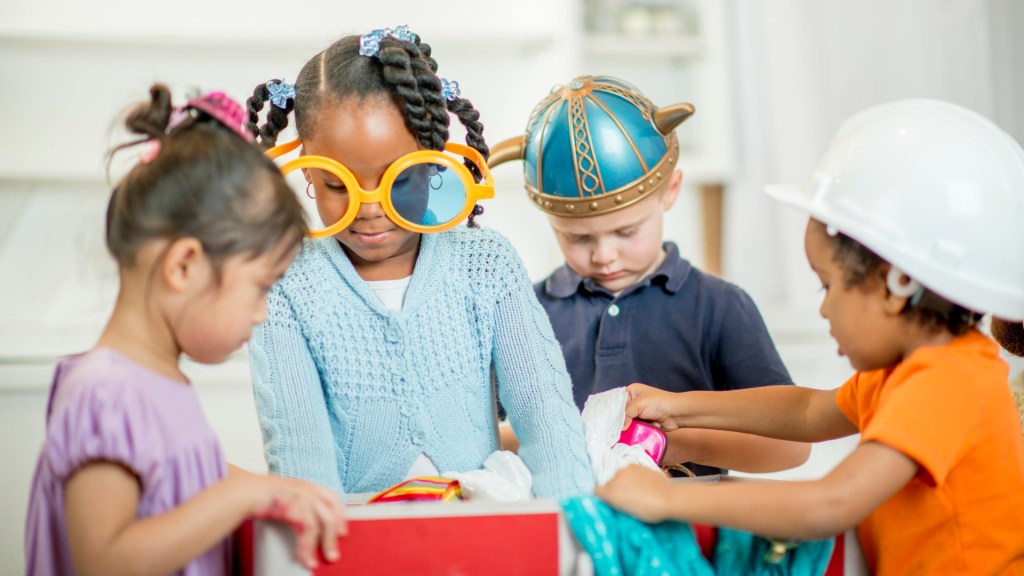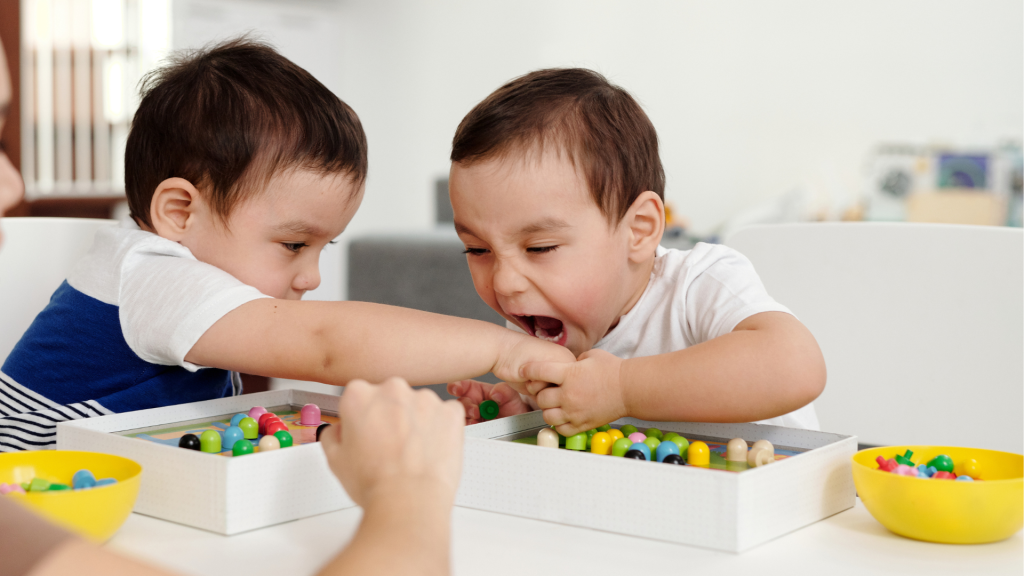At Growing Room, we know that play is far more than just fun; it’s a powerful tool for a child’s development. Decades of research show that when children play, they’re not only exploring the world around them but also building the social and emotional skills that set the stage for lifelong success.
Play Builds Relationships and Empathy
When children engage in cooperative games, dramatic play, or simple turn-taking activities, they learn how to share, negotiate, and resolve conflicts. These interactions help them practice empathy, understanding, and caring about others’ feelings. Whether they’re working together to build a block tower or playing house, children naturally develop the skills to listen, compromise, and respect different perspectives.
Strengthening Emotional Intelligence
Play offers a safe space for children to express feelings and learn how to manage them. Pretend play, for example, allows children to explore big emotions, like excitement, fear, or frustration, in a low-risk environment. By acting out scenarios and experimenting with roles, they gain self-awareness and learn strategies for calming themselves and coping with challenges.
Encouraging Problem-Solving and Resilience
Open-ended play, like building with blocks or creating art, encourages children to think creatively, take risks, and adapt when something doesn’t work as planned. When the tower falls, they try again. This builds perseverance and resilience, key skills that support confidence and a growth mindset.
Supporting Language and Communication
Play is rich with opportunities to practice communication. From describing their imaginary world to negotiating rules for a game, children develop vocabulary, storytelling abilities, and active listening skills. These early experiences lay the foundation for strong reading and writing later on.
Our Commitment to Playful Learning
At Growing Room, our classrooms are designed with purposeful play in mind. Teachers create engaging, age-appropriate activities that spark curiosity while nurturing social and emotional growth. Whether it’s dramatic play centers, sensory tables, or outdoor exploration, every experience is an opportunity to build connections and confidence.
Play is more than just a pastime; it’s the science of growing hearts and minds. By valuing and encouraging play, we’re helping children develop the empathy, self-control, and problem-solving skills they’ll carry into every stage of life.


